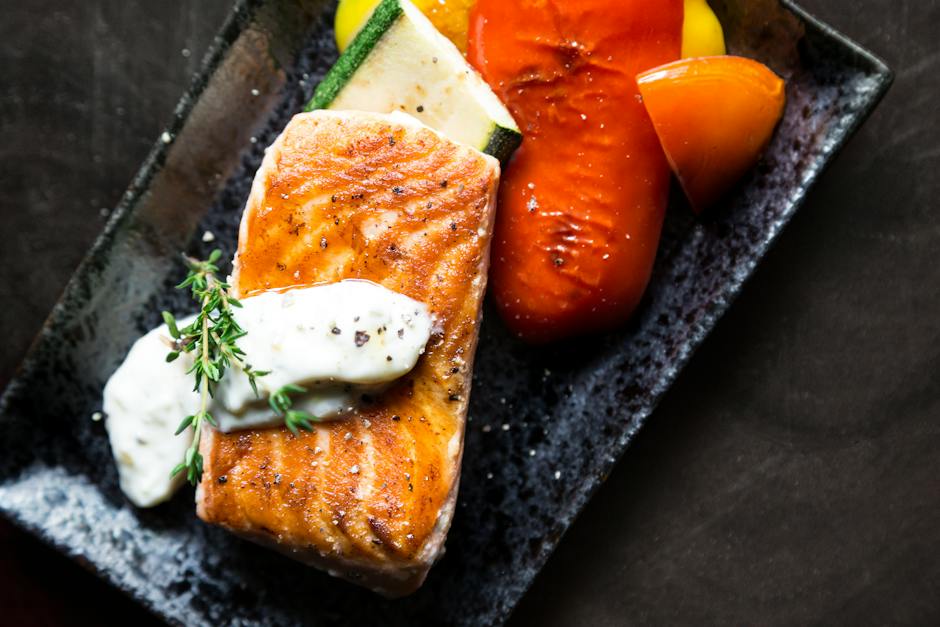What Do Salmon Eat? An In-Depth Look at the Diet of These Majestic Fish
Salmon are among the most popular and fascinating fish species in the world, not only for their culinary appeal but also for their unique life cycle and ecological importance. If you’ve ever wondered about the dietary habits of these majestic creatures, you’re in the right place. In this comprehensive guide, we’ll dive into the depths of rivers and oceans to uncover what sustains these resilient fish. From the tiny organisms that form the basis of their diet to the impact of their feeding habits on the ecosystem, we’ll explore every angle to satisfy your curiosity.
Table of Contents
- Introduction
- The Early Life Diet of Salmon
- Adult Salmon Feeding Habits
- The Role of Salmon in the Ecosystem
- How Seasonal Changes Affect Salmon Diet
- The Impact of Human Activity on Salmon Diet
- Conclusion
The Early Life Diet of Salmon
Freshwater Beginnings: Alevin to Fry
When salmon first hatch from their eggs, they are known as alevin. During this stage, they primarily feed off the yolk sac attached to their bodies. As they grow and develop into fry, they begin to venture out for external food sources. In freshwater habitats, young salmon, or parr, feed on a variety of organisms, including:
- Zooplankton
- Insects and their larvae
- Small crustaceans
The Shift to Smolt and Dietary Changes
As salmon prepare for their journey to the ocean, they undergo a transformation into smolts. This stage marks a significant shift in their diet as they adapt to the changing environment. Smolts start to consume larger prey, such as:
- Larger crustaceans
- Small fish
- Amphipods
Adult Salmon Feeding Habits
Oceanic Feasting: A Diverse Menu
Once salmon reach the ocean, their diet becomes more varied and abundant. Adult salmon are known to be opportunistic feeders, consuming a wide range of prey that includes:
- Herring
- Sand lance
- Squid
- Krill
The Importance of Fat and Protein
Salmon require a diet rich in fat and protein to sustain their energy-intensive lifestyle, especially during migration and spawning periods. The high-fat content found in many of their prey items is crucial for building reserves.
The Role of Salmon in the Ecosystem
Predators and Prey: A Delicate Balance
Salmon play a critical role in both freshwater and marine ecosystems. As predators, they help regulate the populations of their prey, contributing to a balanced food web. Conversely, salmon themselves are a vital food source for:
- Bears
- Eagles
- Humans
Nutrient Cycling: From Ocean to River
The migration of salmon from the ocean back to their natal rivers to spawn is a remarkable journey that also facilitates nutrient transfer across ecosystems. The decaying bodies of spawned-out salmon enrich riverine environments with marine-derived nutrients, supporting a host of organisms.
How Seasonal Changes Affect Salmon Diet
Spring and Summer: Abundance and Growth
During the warmer months, the abundance of prey leads to a period of rapid growth for salmon. They take advantage of the plentiful food sources, such as:
- Blooms of plankton
- Migratory fish schools
Fall and Winter: Preparing for the Lean Times
As temperatures drop and food becomes scarcer, salmon must adapt their feeding strategies. They may rely more heavily on their fat reserves or seek out different types of prey that are more available during these seasons.
The Impact of Human Activity on Salmon Diet
Overfishing and Habitat Loss
Human activities such as overfishing and habitat destruction can have profound effects on the availability and diversity of salmon prey. This can lead to:
- Reduced growth rates
- Lowered reproductive success
Pollution and Contaminants
Pollution from agricultural runoff, industrial waste, and other sources can contaminate the waterways and the organisms within them, affecting the quality and safety of the food that salmon consume.
Conclusion
Understanding what salmon eat is not just about satisfying curiosity; it’s about recognizing the intricate connections within ecosystems and the impact of our actions on these vital creatures. From their early days as fry in freshwater streams to their adult lives in the vast ocean, salmon rely on a diverse diet to thrive. As we continue to explore and protect the natural world, let’s remember the importance of maintaining healthy habitats for salmon and all the species that depend on them. Whether you’re an angler, a conservationist, or simply someone who appreciates the wonder of nature, the story of what salmon eat is a tale worth knowing.


